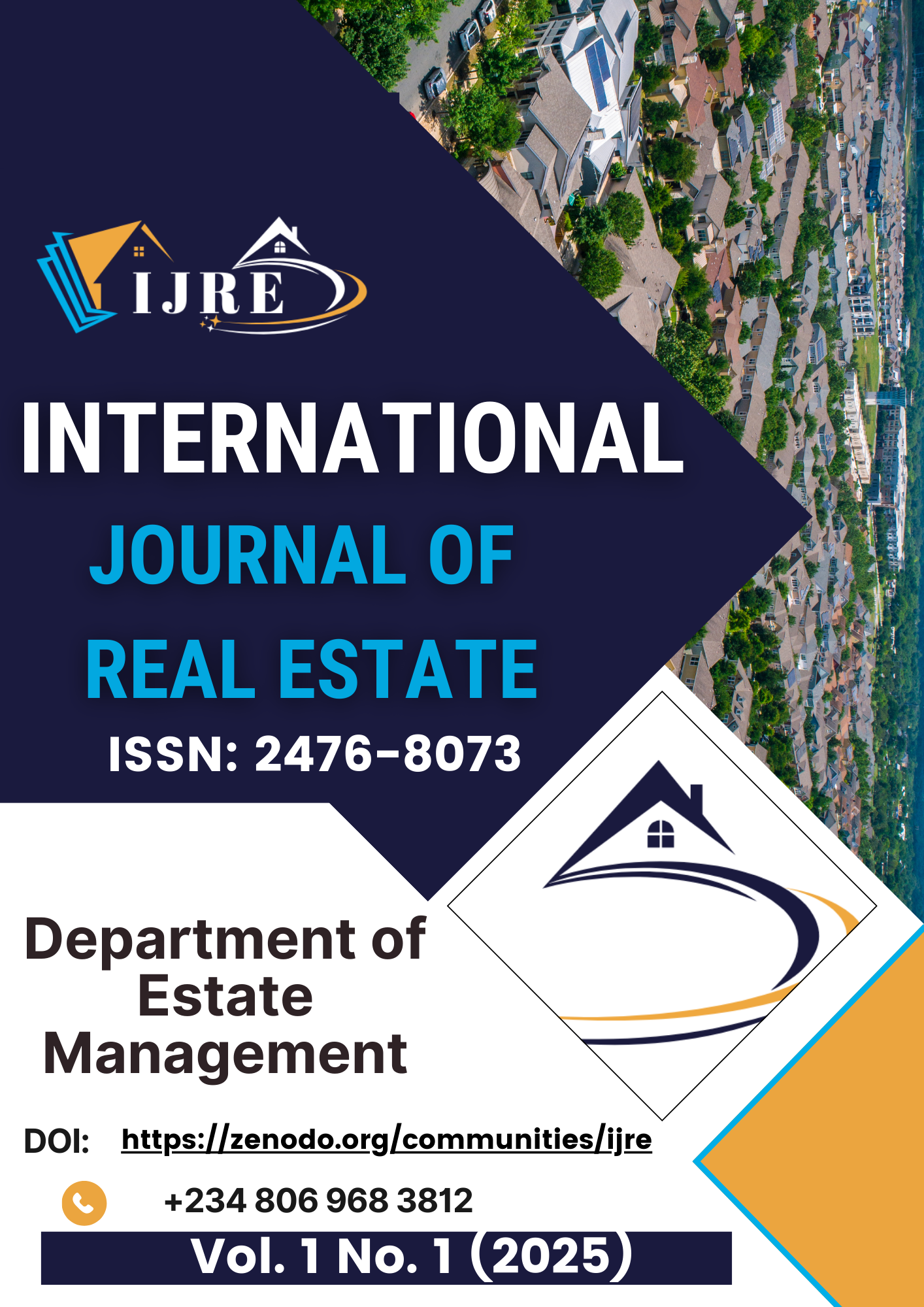Determinants of an Effective Informal Land Delivery System for Residential Development in South-West Nigeria
DOI:
https://doi.org/10.5281/zenodo.14802498Abstract
This paper explores the informal land delivery system in Southwest Nigeria, emphasising its crucial role in mitigating the housing demand that urbanisation and population growth exacerbate. To get information about the informal land delivery system, questionnaires were sent to estate surveying and valuation firms, town planning firms, and land surveying firms in six state capitals (Ade, Akure, Abeokuta, Osogbo, Ibadan, and Ikeja). We analysed the data using factor analysis. Findings from the study show that easy access, low cost, and flexibility make informal land delivery more effective. It also looks at the problems with the formal land market, such as its slow processes and out-of-date rules. The study emphasises the necessity of integrating the informal land delivery system into the formal urban land delivery framework, particularly from a cultural-legal standpoint. The study suggests that a well-structured informal system can act as a transitional solution, effectively bridging the gap between conventional land management practices and the needs of the urban poor. Ultimately, the research advocates for policies that enhance the effectiveness of informal land delivery systems for providing shelter while acknowledging and mitigating their inherent challenges to fostering sustainable urbanisation.
Keywords: Informal land delivery, Residential development, Urban land markets, Land administration, South-West Nigeria
Downloads
Published
Issue
Section
License

This work is licensed under a Creative Commons Attribution-ShareAlike 4.0 International License.





